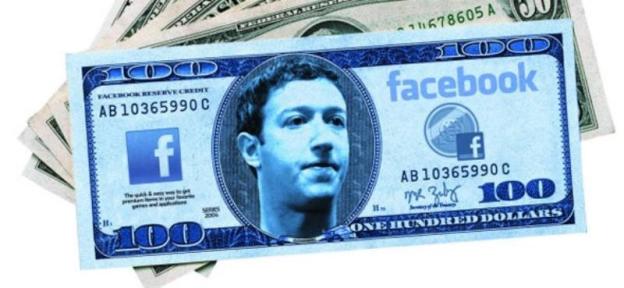
Facebook is now a mobile company. More daily users accessed the social network via a mobile device during the final three months of 2012 than those who visit Facebook through the Web, the company announced in its fourth quarter 2012 earnings report.
The total number of Facebook users who access the social network at least once a month climbed to 1.06 billion in the fourth quarter, a 25 percent increase over the same period last year. Daily active users now equal about 618 million, while the number of “mobile monthly active users” clocks in at 680 million, up from 604 million during the third quarter. Mobile-only users jumped from 126 million in the third quarter to 157 million in the fourth quarter.

“In 2012, we connected over a billion people and became a mobile company,” said CEO and co-founder Mark Zuckerberg in a statement. “We enter 2013 with good momentum and will continue to invest to achieve our mission and become a stronger, more valuable company.”
The boost in mobile users allowed the company to bring in 23 precent of its revenue from mobile ads, up from 14 percent during the third quarter of 2012.
The mobile focus – and growth – over 2012 was expected and hoped for, and Zuckerberg address lingering questions about this piece of his platform’s strategy. Which, of course, led to the alleged Facebook phone – and he once again says Facebook will be building no such thing. “People are spending 20 percent of more of their time using on mobile and it should be fully integrated into all of the devices. We need to make it so we can go deeper and deeper [into mobile].” Zuckerberg also spoke about his company’s relationship with iOS and the Google-owned Android.
“Android is a very dynamic and open platform as long as, Google keeps it that way,” he quipped. “Even though our relationship with Google isn’t one where the companies really talk we are able to do a bunch of things because they have an open platform that lets us really get into the system… for Messenger, for example, you can build a messaging app that can do SMS on the phone. You cant do that on iOS.”
“On iOS, because it’s a more locked down system, the way you can do deeper integration is by working with Apple and they’ve been a great partner with us so far. People enjoy the integration we have with them, to share photos and webpages, and we’re really happy with it. It’s a really good experience and I’m really happy with the relationship we have with them.”
Facebook also addressed questions about Graph Search, which Zuckerberg emphasized will be a pillar of the company. “One of the things we talked about when we rolled out Graph Search is there are more than a trillion connections between people and things… we’re just coming from a completely different place [than Google],” he said. “Traditional Web search is completely unstructured… Google and traditional search engines are trying to put in that sort of structured search in different ways, but we are years ahead on that.”
Facebook’s revenue climbed 40 percent year-over-year to $1.585 billion, with $1.33 billion, or 84 percent, coming from advertising. Payments and “other fees revenue” was $256 million for the quarter. The company says ad revenue jumped 41 percent compared to fourth quarter of last year, with changes in foreign exchange rates taken into account.
Despite the jump in revenue, Facebook’s profits have fallen off a cliff, with a net income of just $64 million during the fourth quarter, a 79 percent drop from the $302 million it earned during the same period in 2011. That equates to about 3 cents per share, a fifth of what analysts had predicted. The net income drop comes as a result of higher spending on new advertising services.
Facebook’s stock price initially fell 3.27 percent to $30.22 in after-hours trading, but has since rebounded to $31.24 at the time of this writing.
Editors' Recommendations
- Best Black Friday iPad Deals: iPad Air, iPad Mini, iPad Pro
- Step up your Zoom game with this ring studio light — now $20
- Samsung Galaxy Buds+ down to their LOWEST-EVER PRICE today
- How to go live on Facebook
- How to opt out of targeted ads on Facebook


